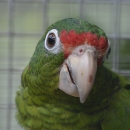Our Services
Subsistence
For over 10,000 years, humans have depended on the natural resources of the upper Tanana River drainage for survival. These land and water resources have been essential for food, clothing, shelter, tools and items for trade and barter with neighbors. This way of life is based upon an elemental reciprocal agreement made in the dawn of prehistory between man and the wildlife of Alaska. For his part, man agreed to take only what he needed and to be respectful of the wildlife and fish. In return, the animals and fish promised to freely give themselves to him so that he too might survive on the land.
This agreement is a basis of the cultural heritage of the native people of interior Alaska today. Many other rural residents share this natural resource philosophy. The Refuge offers several subsistence opportunities to local residents: a winter moose and caribou hunt, a spring waterfowl hunt and fishing opportunities throughout the year. The subsistence way of life is protected by the Alaska National Interest Lands Conservation Act of 1980.
Sport Hunting & Fishing
Hunting and fishing are popular activities on the Refuge. All anglers and hunters must have a current Alaska hunting or fishing license and follow state and federal regulations. Certain hunts for non-residents require the use of a licensed and permitted guide. The types of hunts that require a guide are spelled out in the state hunting regulations. (For a list of Refuge permitted guides please contact the Refuge office.) For regulations and details on purchasing state licenses, contact the Refuge office or Alaska Department of Fish and Game. (Federal subsistence moose and caribou hunts require a special permit available at Refuge headquarters.)
Public Use Cabins
Refuge public use cabins are reserved though our main headquarters office located in Tok, Alaska 1.3 mile Borealis Ave they are available for free on a first come, first served basis except during the state general hunting season when they are available through a lottery system. For inquiries on how the lottery system works please call the headquarter office. Call 907-883-5312 for more information.
Special Use Permits
Special Use Permits are required for any commercial activity on the Refuge. Other non-commercial activities may require a Special Use Permit. Please contact the Refuge for more information.
Import / Export Permits
If you need to cross through Canada (or are from another country) and plan on taking home any wildlife parts (including, meat, furs and handicrafts containing wildlife parts) you may need an import/export permit, “Declaration of Import/Export 3-177.”
Fish and Wildlife Inspector’s Office, Anchorage Airport (907) 271-6198
Fish and Wildlife Service Law Enforcement Office, Anchorage (907) 271-6198
Fish and Wildlife Service Law Enforcement Office, Fairbanks (907) 456-0255
Tetlin National Wildlife Refuge Office, Tok ( 907) 883-5312
Marine mammal parts (ivory, baleen, etc.) are not allowed into Canada. All pieces containing any marine mammal parts must be mailed or flown back to the lower 48.
For more information you'll need Declaration Form 3-177 (for importers and exporters).


